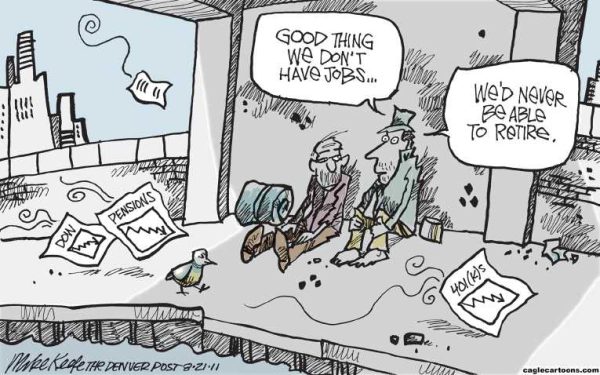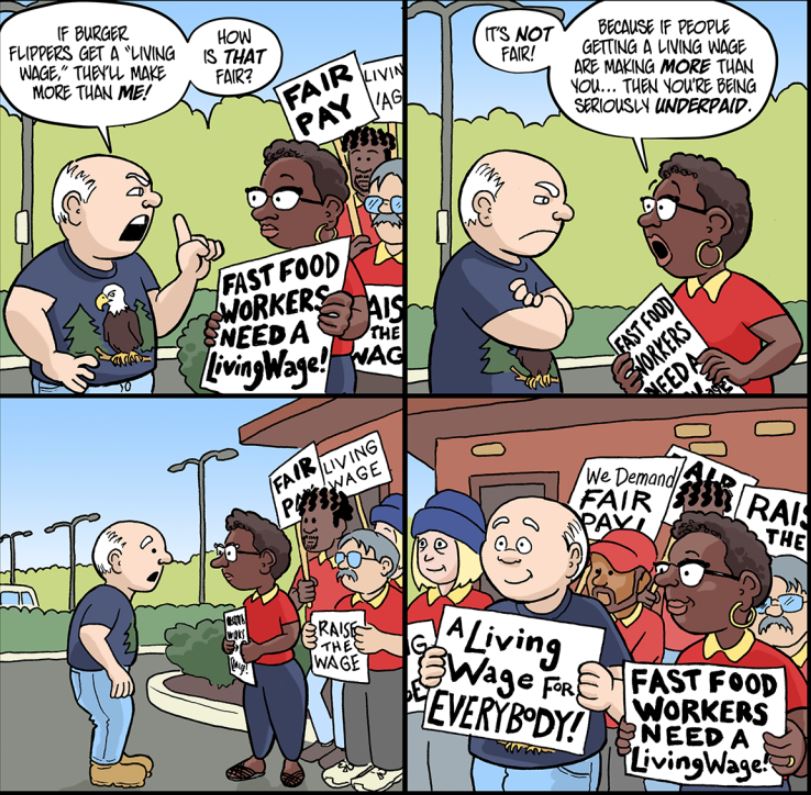America’s Unemployment System: A Model That Favors Employers Over Workers
In the United States, the pursuit of the American Dream has been a driving force for generations. It promises equal opportunities and prosperity for all. However, when it comes to the unemployment system, a stark contrast emerges. Unlike many other countries, America’s unemployment system is rooted in state-centric capitalism, and its workers who often pay the price.
A Patchwork of Inequality
One of the striking features of America’s unemployment system is its fragmentation. It operates on a state-by-state basis, meaning that the benefits you receive depend largely on where you live and how you lost your job. This can result in stark disparities, with some states offering more support than others. According to data from the National Employment Law Project (NELP), the weekly unemployment benefits a worker receives can vary significantly depending on their state of residence. For example, as of 2021, Massachusetts provided a maximum benefit of $855 per week, while Mississippi offered a maximum of $235 per week.
In many other countries, social safety nets are standardized nationwide, ensuring that every worker, regardless of location, is entitled to a basic level of support in times of need. In contrast, the American system allows for significant variation, leaving many workers at a disadvantage.
The Employer’s Advantage
Critics argue that America’s unemployment system tends to favor employers over workers. Unlike systems in many European countries, where the financial burden of unemployment benefits is often shared between employers, employees, and the government, the U.S. system often puts the onus on employers. This can create disincentives for companies to hire, potentially limiting job opportunities for workers.
Data from the OCED can be used to compare the structure of unemployment benefits in the United States with those in European countries.
In many European countries, employers, employees and governments share the financial responsibility for unemployment benefits. Whereas in the U.S.; American employers are often the primary contributors.

Inequity and Insecurity
The state-centric nature of the American system can result in inequities. Workers who find themselves jobless in one state may receive significantly less support than their counterparts in a different state, creating a troubling gap in social safety nets. Moreover, strict eligibility criteria and means-testing can further limit access to benefits, leaving many workers without the financial support they may desperately need. Proponents of the state-centric model argue that it allows states to tailor their unemployment systems to local economic conditions and needs. They contend that what works in a high-cost urban area may not be suitable for a rural community. The flexibility offered by the state-based approach can be seen as an advantage rather than a drawback.
While state autonomy can be beneficial in some respects, it’s crucial to recognize that significant disparities in benefits can arise. Workers in states with limited resources or less progressive policies may face greater challenges during economic downturns. Balancing state autonomy with ensuring a minimum level of support for all workers is a central issue in this debate.
Towards a More Inclusive System
America’s unemployment system is ripe for reform. By adopting a more inclusive approach like other countries in the world, America could provide a safety net that truly benefits all workers.
Universal programs like Universal Basic Income (UBI) have gained traction as potential solutions. Pilot programs, such as the Stockton Economic Empowerment Demonstration (SEED), have shown that direct financial support can reduce poverty and enhance financial security.
Skeptics of universal programs like Universal Basic Income (UBI) raise concerns about the cost of such initiatives. They argue that implementing widespread financial support could strain government budgets, potentially leading to increased taxes or other economic challenges.
The cost of implementing universal programs should indeed be carefully considered. However, studies and pilot programs, like the Stockton Economic Empowerment Demonstration (SEED), have shown that direct financial support can lead to positive outcomes, including reduced poverty and increased economic stability. Moreover, proponents argue that investments in social safety nets can have long-term economic benefits, reducing the need for emergency assistance and promoting overall economic well-being.
America’s unemployment system, characterized by its “state rights” nature and employer-focused design, stands in contrast to many other nations’ social safety nets. Reforming this system could ensure that every worker has access to essential support, regardless of their location or circumstances. As discussions about social safety nets continue, the question remains: Will America embrace a more inclusive future for its workers?

























